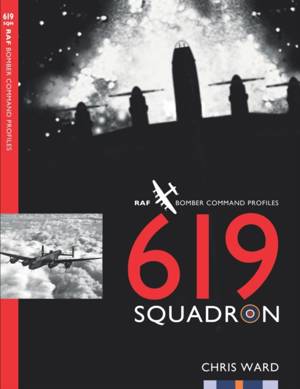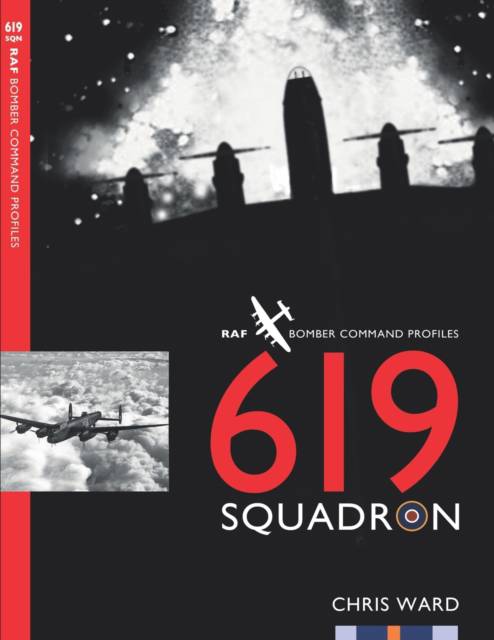
- Retrait gratuit dans votre magasin Club
- 7.000.000 titres dans notre catalogue
- Payer en toute sécurité
- Toujours un magasin près de chez vous
- Retrait gratuit dans votre magasin Club
- 7.000.0000 titres dans notre catalogue
- Payer en toute sécurité
- Toujours un magasin près de chez vous
35,95 €
+ 71 points
Description
619 Squadron came into existence when Bomber Command was expanding during the spring of 1943, its high number, like that of the famous 617 Squadron, reflecting the fact that it was not a reforming unit, but was brand new with no history behind it. Like some other squadrons created within Bomber Command at this time, and later, in the autumn of 1943, it would not be awarded an authorised crest and motto during its relatively brief period of service, arriving on the operational scene as it did with just two years of conflict left. The squadron was formed at Woodhall Spa in April 1943 under the banner of 5 Group, and it would serve as a standard "squadron of the line", beginning operations in June 1943, during the most intense weeks of the five-month-long Ruhr offensive. From that point on, the squadron took part in all the main bombing campaigns, including the devastating four-raid series against Hamburg under Operation Gomorrah at the end of July. The squadron then participated in attacks against Italy, Peenemünde and the start of the Berlin offensive in August. Autumn saw the crippling attacks on Hannover, Mannheim and Kassel in September and October, followed by the main Winter Offensive from November 1943 to the end of March 1944, including the sixteen further raids on Berlin. At the start of 1944, the squadron moved to Dunholme Lodge, from where it participated in the Transportation Plan and other pre- and post-invasion campaigns, including those against oil refineries, railways and flying-bomb storage and launching sites along with tactical support for the ground forces. The squadron played a full part in the second Ruhr offensive from October 1944, during which period the Command bludgeoned its way across Germany delivering the heaviest blows of the war against its industrial and communications systems. The squadron took up residence at Strubby towards the end of 1944 and remained there until the end of hostilities. 619 Squadron ended the war with a fine record of service, having made a telling contribution to Bomber Command's part in the ultimate victory. Chris Ward's Bomber Command Squadron Profiles series continues with a comprehensively-illustrated, in-depth operational history of this fine unit.
Spécifications
Parties prenantes
- Auteur(s) :
- Editeur:
Contenu
- Nombre de pages :
- 230
- Langue:
- Anglais
- Collection :
- Tome:
- n° 17
Caractéristiques
- EAN:
- 9781911255864
- Date de parution :
- 06-09-21
- Format:
- Livre broché
- Format numérique:
- Trade paperback (VS)
- Dimensions :
- 216 mm x 279 mm
- Poids :
- 544 g

Les avis
Nous publions uniquement les avis qui respectent les conditions requises. Consultez nos conditions pour les avis.






